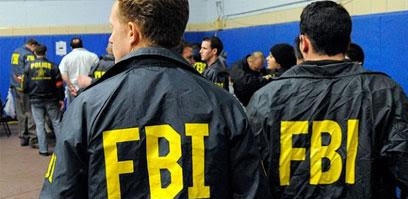
FBI
FBI arrests most-wanted fraudster Abiola Kayode in Ghana over $6m business email racket
United States Attorney Susan Lehr said Abiola Kayode, arguably the most wanted fraudster suspect has been arrested in Ghana where he fled to from Nigeria.
Abiola Kayode, 37, of Nigeria, is wanted in the District of Nebraska on a Conspiracy to Commit Wire Fraud Indictment, filed in August 2019 in Omaha, Nebraska.
Indeed, in April 2023, law enforcement authorities in the Republic of Ghana arrested Kayode pursuant to a U.S. request for his extradition.
Ghanaian authorities ultimately granted this request and surrendered Kayode to FBI special agents who brought him to the District of Nebraska.
Kayode had an initial appearance on the indictment on December 11, 2024. United States Magistrate Judge Michael D. Nelson ordered Kayode remain detained pending trial.
Kayode, who was on the FBI’s Most Wanted Cyber Criminal List, is alleged to have participated in a business email compromise (BEC) scheme from January 2015 to September 2016. The BEC scheme defrauded businesses in the District of Nebraska and elsewhere of more than $6 million.
According to the indictment, Kayode’s co-conspirators posed as the chief executive officer, president, owner, or other executive of the targeted company. Using e-mail accounts spoofed to make it appear as though they were from the company’s true business executive, Kayode’s co-conspirators directed business employees or recipients of the e-mail to complete wire transfers.
The business employees, believing the requests were legitimate, complied with the wire transfer requests and wired the money as instructed by Kayode’s co-conspirators.
It is alleged Kayode provided bank account information to the co-conspirators who sent the fraudulent e-mails, and which directed business employees to wire money to accounts controlled by Kayode and others.
These bank accounts largely belonged to victims of internet romance scams, who were instructed by co-conspirators to transfer the funds to other bank accounts.
Some of Kayode’s co-conspirators have already been convicted and sentenced. Adewale Aniyeloye, one of the fraudsters sending the spoofed e-mails to the target business, was sentenced in February 2019 to 96 months’ imprisonment and ordered to pay $1,570,938.05 in restitution.
Pelumi Fawehinimi, a bank account facilitator, was sentenced in March 2019 to 72 months’ imprisonment and ordered to pay $1,014,159.60 in restitution.
Onome Ijomone, a romance scammer, was sentenced in January 2020 to 60 months’ imprisonment and ordered to pay $508,934.40 in restitution after his successful extradition from Poland.
Other co-conspirators remain at large. Alex Ogunshakin, a co-conspirator who provided bank accounts for the scheme, was sentenced to 45 months’ imprisonment in October 2024 after his successful extradition from Nigeria.
“Four years ago, we identified six Nigerian nationals suspected of defrauding individual victims and businesses in Nebraska and other states of millions of dollars,” said FBI Omaha Special Agent in Charge Eugene Kowel. “Today, Abiola Kayode is the second of those co-conspirators to be extradited to stand trial in Nebraska. Our message to the remaining four co-conspirators; we are coming for you. Dismantling cyber-criminal groups that victimize U.S. citizens is a priority for the FBI, DOJ, and our international law enforcement partners. The FBI, working together with our partners in Ghana, particularly the Office of the Attorney General and Ministry of Justice, the Ghana Police Service – INTERPOL, and the Ghana Immigration Service, will continue to pursue and bring to justice criminals who engage in Business Email Compromise and other fraud schemes.”
This case was investigated by the Federal Bureau of Investigation. The Department of Justice’s Office of International Affairs provided significant assistance in securing Kayode’s extradition.
An indictment is merely an allegation. All defendants are presumed innocent until proven guilty beyond a reasonable doubt in a court of law.
